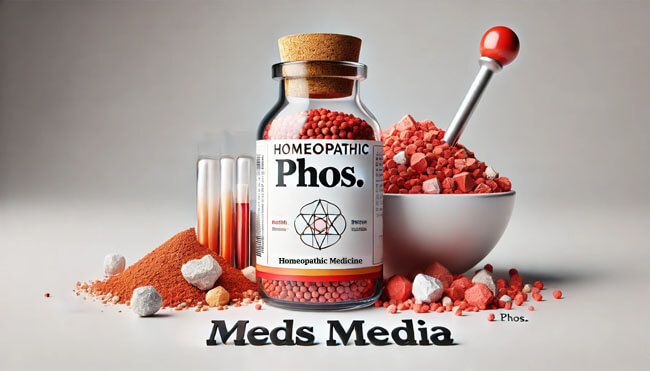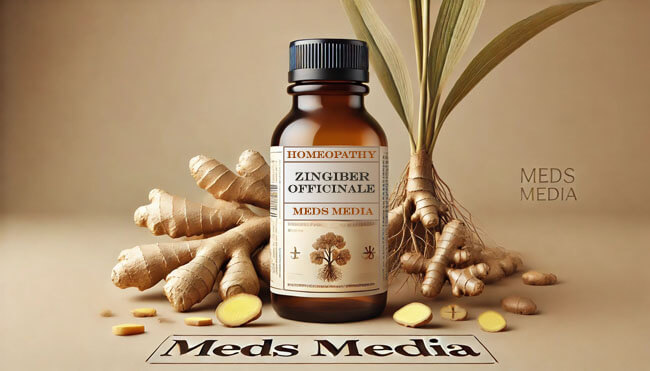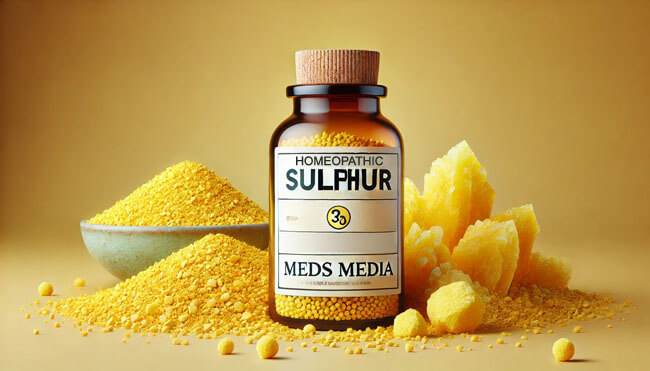
RHEUM PALMATUM is a homeopathic medicine derived from the plant Rheum palmatum, commonly known as Chinese rhubarb. It is used in homeopathy to address a range of symptoms and conditions.
Properties and Preparation:
Rheum palmatum is prepared as a homeopathic remedy using a process of potentization, involving dilution and succussion (vigorous shaking).
The plant’s roots are primarily used to create the homeopathic remedy.
The resulting remedy is believed to stimulate the body’s healing response and assist in symptom relief.
Symptoms treatment and materia medica:
Digestive complaints: Rheum palmatum is often indicated for digestive issues such as diarrhea, colic, and abdominal pain, which may be accompanied by rumbling and gurgling sounds in the abdomen.
Loose stools: It is commonly used when stools are watery, sour-smelling, and profuse.
Diarrhea during teething: It can be helpful for infants who experience diarrhea during the teething process.
Hemorrhoids: Rheum palmatum is used for hemorrhoids that are sore, painful, and accompanied by a constant urge to pass stools.
Acidic stools: It may be prescribed for stools that are acidic, causing irritation and discomfort.
Anal itching: It is indicated when there is intense itching and burning around the anus.
Restlessness: Rheum palmatum is often used when restlessness and anxiety accompany digestive symptoms.
Sleep disturbances: It may be beneficial when sleep is disturbed due to digestive discomfort or restlessness.
Prolapse of rectum: It is used when there is a tendency for the rectum to protrude during bowel movements.
Biliary colic: Rheum palmatum can be considered for sharp, colicky pain in the region of the gallbladder.
Indigestion: It is indicated when there is difficulty in digesting fatty or rich foods, leading to heaviness and discomfort in the abdomen.
Flatulence: It may be used for excessive gas and bloating, accompanied by belching and a feeling of fullness.
Sour eructations: Rheum palmatum is helpful when there are sour, acidic burps or belches after eating or drinking.
Mouth ulcers: It can be beneficial for painful mouth ulcers that are aggravated by acidic foods or drinks.
Nausea and vomiting: It is indicated for nausea and vomiting, particularly in cases worsened by fatty or rich foods.
Frequently Asked Questions (FAQ):
Q: Is Rheum palmatum safe to use?
A: Rheum palmatum is generally considered safe when used according to the guidelines of homeopathic practice. Homeopathic remedies are highly diluted and have minimal risk of adverse effects. However, it is advisable to consult with a healthcare professional or a qualified homeopath before using any medication or remedy.
Q: How should Rheum palmatum be taken?
A: The dosage and potency of Rheum palmatum can vary depending on the individual and the specific symptoms being addressed. It is typically available in the form of pellets or liquid dilutions. The exact dosage and frequency of administration should be determined by a homeopathic practitioner based on the individual’s needs.
Q: Can Rheum palmatum be used during pregnancy and breastfeeding?
A: It is generally advisable to consult with a healthcare professional or a qualified homeopath before using any medication or remedy, including Rheum palmatum, during pregnancy and breastfeeding. They can provide personalized guidance based on the specific circumstances.
Q: What are the possible side effects of Rheum palmatum?
A: Homeopathic remedies, including Rheum palmatum, are highly diluted and generally considered safe. The risk of side effects is minimal. However, in rare cases, a temporary aggravation of symptoms may occur, known as a homeopathic aggravation. If any unusual or persistent symptoms arise, it is important to seek guidance from a healthcare professional.
Q: How long does it take for Rheum palmatum to show results?
A: The response to Rheum palmatum can vary from person to person. Some individuals may experience relief from symptoms relatively quickly, while others may require a longer duration of treatment. The length of time to see results depends on various factors, including the nature of the symptoms and the individual’s overall health. Consistency in following the prescribed dosage is important for optimal results.
Q: Can Rheum palmatum be used alongside conventional medications?
A: Homeopathy can be complementary to conventional medicine. However, it is advisable to consult with a healthcare professional regarding the use of Rheum palmatum alongside any conventional medications. They can provide personalized guidance based on the specific medications and health conditions involved.
Q: Is it necessary to consult a homeopathic practitioner before using Rheum palmatum?
A: While some minor acute conditions may be self-treated with homeopathic remedies, it is generally recommended to consult a qualified homeopathic practitioner for a thorough evaluation and individualized treatment plan. They can assess your symptoms, medical history, and provide the most appropriate guidance regarding the use of Rheum palmatum or any other remedies.
Books References:
* The Materia Medica: A Comprehensive Guide to Homeopathic Remedies” by Dr. S. R. Phatak.
* Homeopathic Drug Pictures” by Margaret Lucy Tyler.
* Boericke’s New Manual of Homeopathic Materia Medica with Repertory” by William Boeric
* The Prescriber: A Dictionary of the New Therapeutics” by John Henry Clarke This book provides a comprehensive dictionary of homeopathic remedies and their therapeutic applications. It may include information on Rheum palmatum and its indications.
* Keynotes and Characteristics with Comparisons of Some of the Leading Remedies of the Materia Medica” by H.C. Allen: This book focuses on the key characteristics and differentiating features of various homeopathic remedies, including Rheum palmatum. It can help in understanding its specific symptoms and indications.
Please note that these book references are provided for informational purposes. It is important to consult a qualified homeopathic practitioner or refer to trusted sources for accurate and personalized information on the use of Rheum palmatum and homeopathic remedies.
Why Meds Media guides are different
We focus on clear, practical explanations of homeopathic and natural health topics so you can understand remedies, symptoms, and lifestyle changes in simple language.
Meds Media is an educational resource only. Always consult a qualified doctor or homeopathic practitioner before starting, stopping, or changing any treatment.
Similar Posts You may also like
Zincum Picricum Homeopathic Medicine & Personality | Uses, Benefits & Indications
Zincum Phosphoricum Homeopathic Medicine & Personality | Uses, Benefits & Indications
Zincum Iodatum Homeopathic Medicine & Personality | Uses, Benefits & Indications
Zincum Bromatum Homeopathic Medicine & Personality | Uses, Benefits & Indications
Zea Homeopathic Medicine & Personality | Uses, Benefits & Indications
Zincum Aceticum Homeopathic Medicine & Personality | Uses, Benefits & Indications
Zincum Cyanatum Homeopathic Medicine & Personality | Uses, Benefits & Indications
Zincum Muriaticum Homeopathic Medicine & Personality | Uses, Benefits & Indications
Zincum Oxydatum Homeopathic Medicine & Personality | Uses, Benefits & Indications
Zincum Sulphuricum Homeopathic Medicine & Personality | Uses, Benefits & Indications

Phosphorus Homeopathic Medicine & Personality | Uses, Benefits & Indications
Causticum Homeopathic Medicine & Personality | Uses, Benefits & Indications

Top Global Homeopathic Medicine Manufacturers

Top renowned Homeopathic research institutes worldwide

Veratrum Viride Homeopathic Medicine & Personality | Uses, Benefits & Indications

Spongia Tosta Homeopathic Medicine & Personality | Uses, Benefits & Indications

Zingiber Officinale Homeopathic Medicine & Personality | Uses, Benefits & Indications


